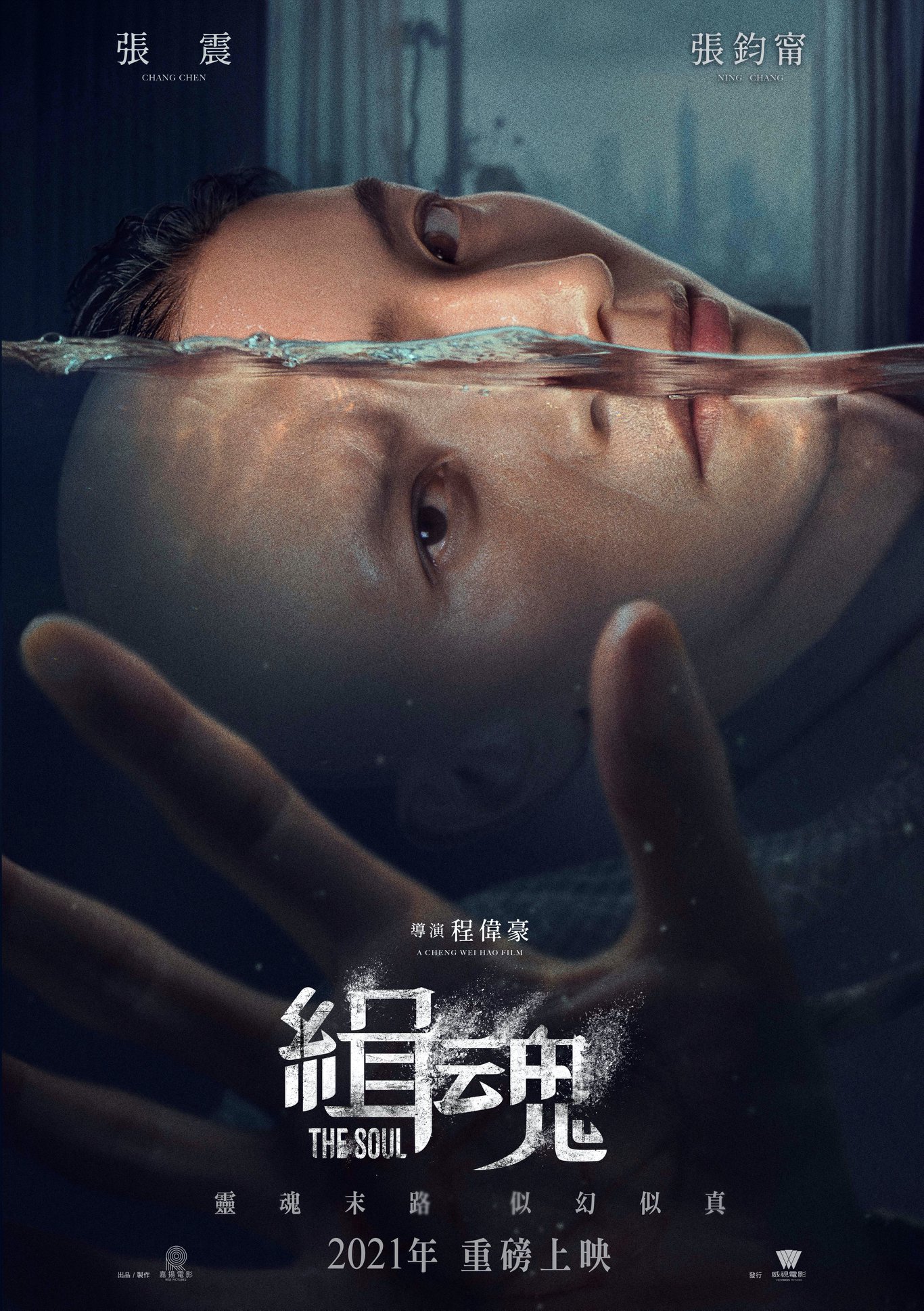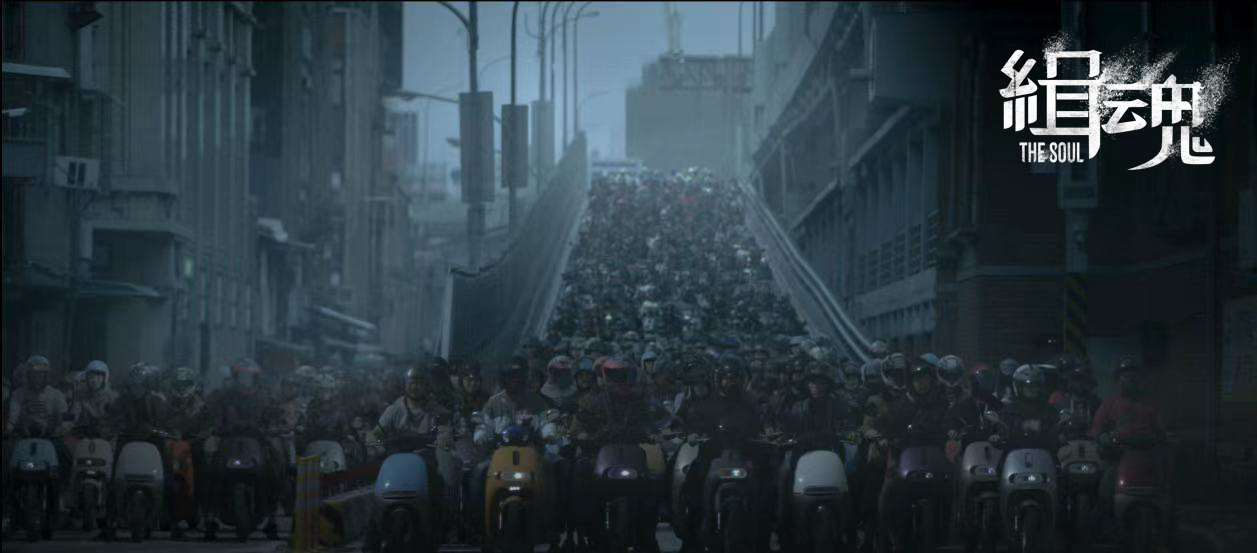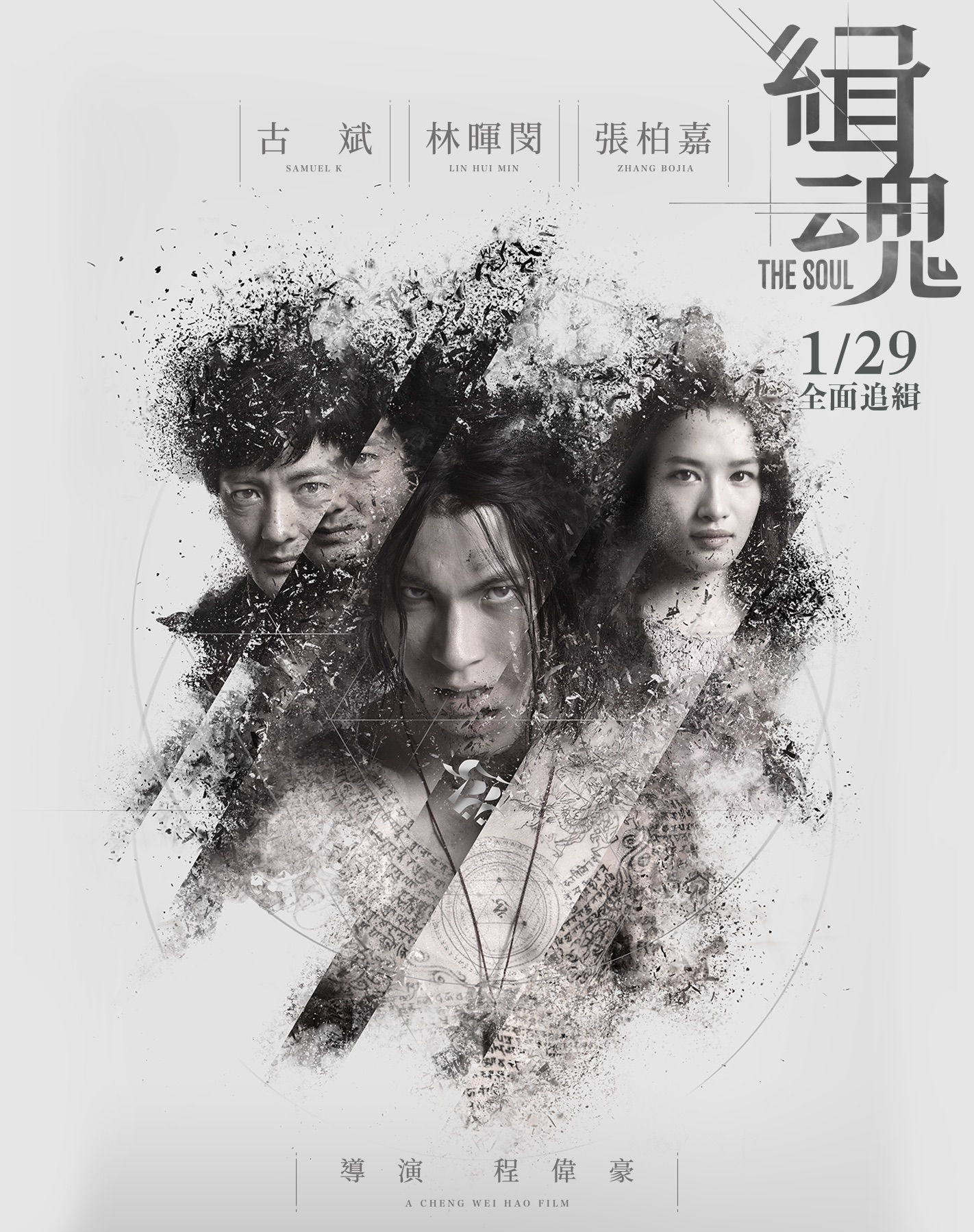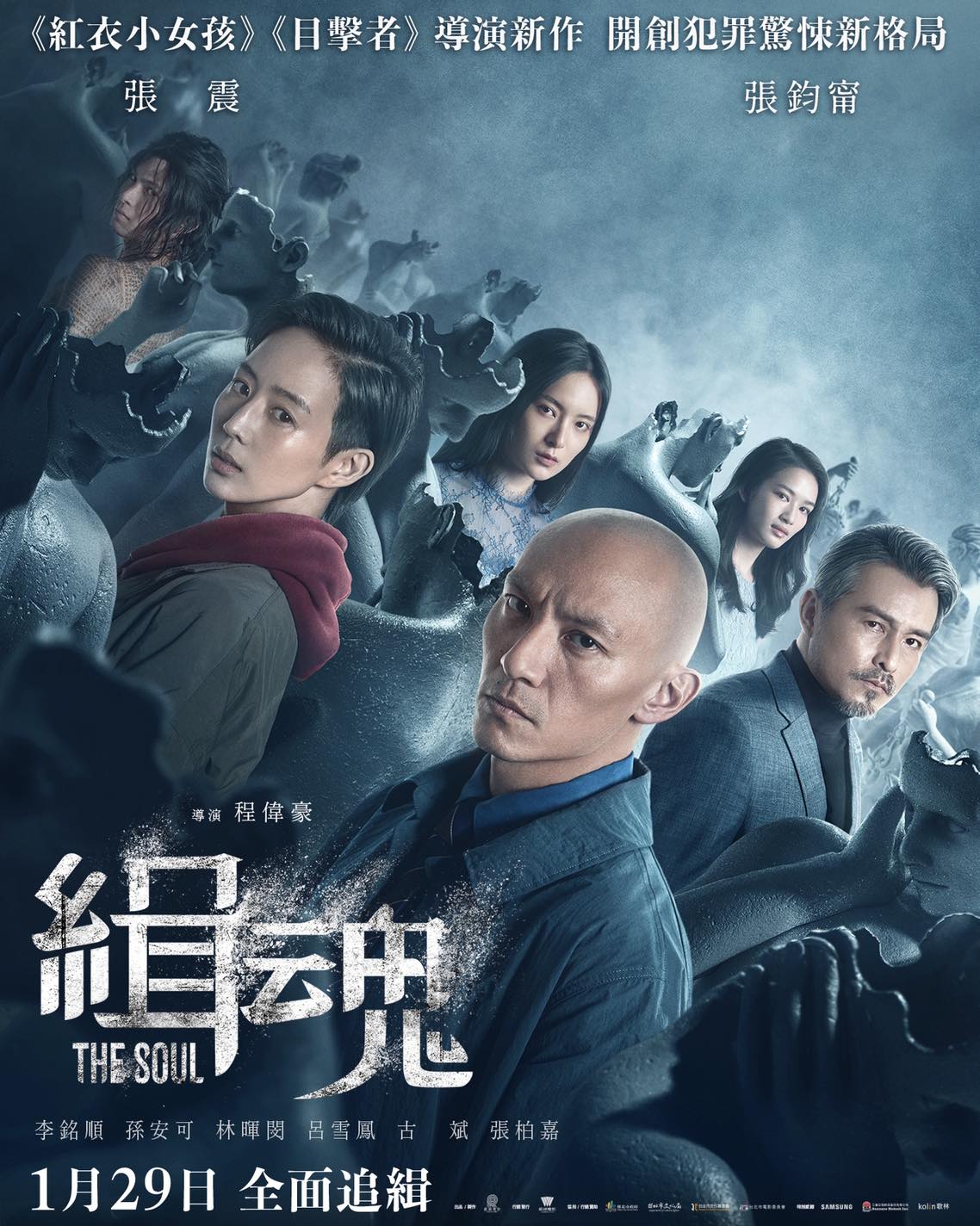by Brian Hioe
語言:
English
Photo Credit: The Soul/Facebook
THE SOUL (緝魂) stands out among recent Taiwanese film as an effective and well-executed commercial thriller. Though the film fails to stick the landing, with its convoluted and messy conclusion undoing some of the movie’s other merits, The Soul proves an entertaining watch—even a rather evocative one.
Set in a near-future Taipei in the 2030s, The Soul details prosecutor Liang Wen-chao’s investigation of the murder of wealthy biomedical company CEO Wang Shi-cong. Liang works alongside his wife Ah-bao, an investigator, and is coping with a sense of his impending mortality after a cancer diagnosis.

Film poster. Photo credit: The Soul/Facebook
Initial suspicion falls on Wang’s estranged son Wang Tian-you, a believer in the mystical that begrudges his father over the events that led to the death of his mother, Tang Su-zhen. Tang placed an apparent curse on Wang before committing suicide several years prior. However, questioning the other surviving associates of Wang, such as his young second wife, Li Yan, and his business partner Wan Yu-fan, finds that there is more to the murder case than meets the eye.
What initially appears to be a plot that involves elements of the supernatural, with Wang’s first wife apparently returning after death to possess the living, eventually turns out to be science fiction. Namely, Wang’s company was involved in experimental efforts to develop mind transfer technology, allowing for the dead to live on in new bodies.
In this respect, The Soul shifts genres partway through the film—but this takes the form of grafting the aesthetics of a film about the supernatural onto what is fundamentally a science fiction film. This is a case of Arthur’s third law, perhaps (“Any sufficiently advanced technology is indistinguishable from magic.”) Yet this proves highly effective, serving as a vehicle for the film to ask questions about life after death and how far one would go for one’s loved ones, as well as to establish a pervasive sense of haunting through the film.

Photo credit: The Soul/Facebook
It is through the unexpected juxtapositions in the film that The Soul is strongest. The near-future Taipei depicted in The Soul is another triumph, in that many elements of the present are retained, such as cars or handguns, but surveillance technology, drones, and the use of digital screens are now ubiquitous. Indeed, The Soul manages to create an aesthetic for its Taipei that is not exactly cyberpunk—seeing as the movie is only set about ten years in the future—but which draws on elements of cyberpunk. However, the film manages something different, a near-future Taipei that is on its way to becoming something like a high cyberpunk dystopia, perhaps.
Where The Soul is not as successful is with regards to its conclusion, hinging on that some characters are less than fully developed. In a twist, it turns out that Li Yan did not have her mind overwritten with Wang’s first wife Tang Su-zhen through mind transfer technology, but with Wang—Wang identified as female in life, but hid this due to social stigma, and so chose to transfer minds to a female body after death. Wan Yu-fan was not the lover of Tang Su-zhen but of Wang. It was this new version of Wang that killed the original, losing patience with the plan for her to inherit Wang’s business empire after the original died.
Nonetheless, the role of Wang ultimately is where the film comes apart. To the film’s credit, the revelation that Wang identified as female is not presented along prejudiced lines of Wang being a villainous transgender character or as a part of an attempt to “humanize” the merciless and cruel Wang; it is just another detail of Wang’s characterization, as Wang is not a “transgender character” but simply a character who is transgender. Yet, that being said, Wang remains a two-dimensional character that is opaque and unsympathetic to the audience, whereas the film’s efforts to make other characters multidimensional are more successful.

Film poster. Photo credit: The Soul/Facebook
Otherwise, the film is generally well-acted. Chang Chen, who plays Liang Wen-chao, manages an effective balance of being harsh and strict, while concealing hidden emotional vulnerability and deep love for his wife. In line with the film’s issues regarding Wang, however, Chinese actress Sun Anke does her best with the role of Li Yan, a Chinese character. But Sun cannot manage playing a character who initially appears to be possessed by Tang Su-zhen and then is later revealed to be possessed by Wang Shi-cong. Although Sun switches from a Chinese accent to a Taiwanese accent once it is revealed that she has had her mind overwritten, her accent is still too recognizably Chinese, and her body language or other mannerisms do not recognizably shift. This proves a missed opportunity for a role that could have otherwise carried the film.
The Soul could have been a much more fully realized work and, in this respect, one recognizes many moments of missed opportunity. Regardless, the film is still an enjoyable one, and far stronger than other genre fare of its kind.



